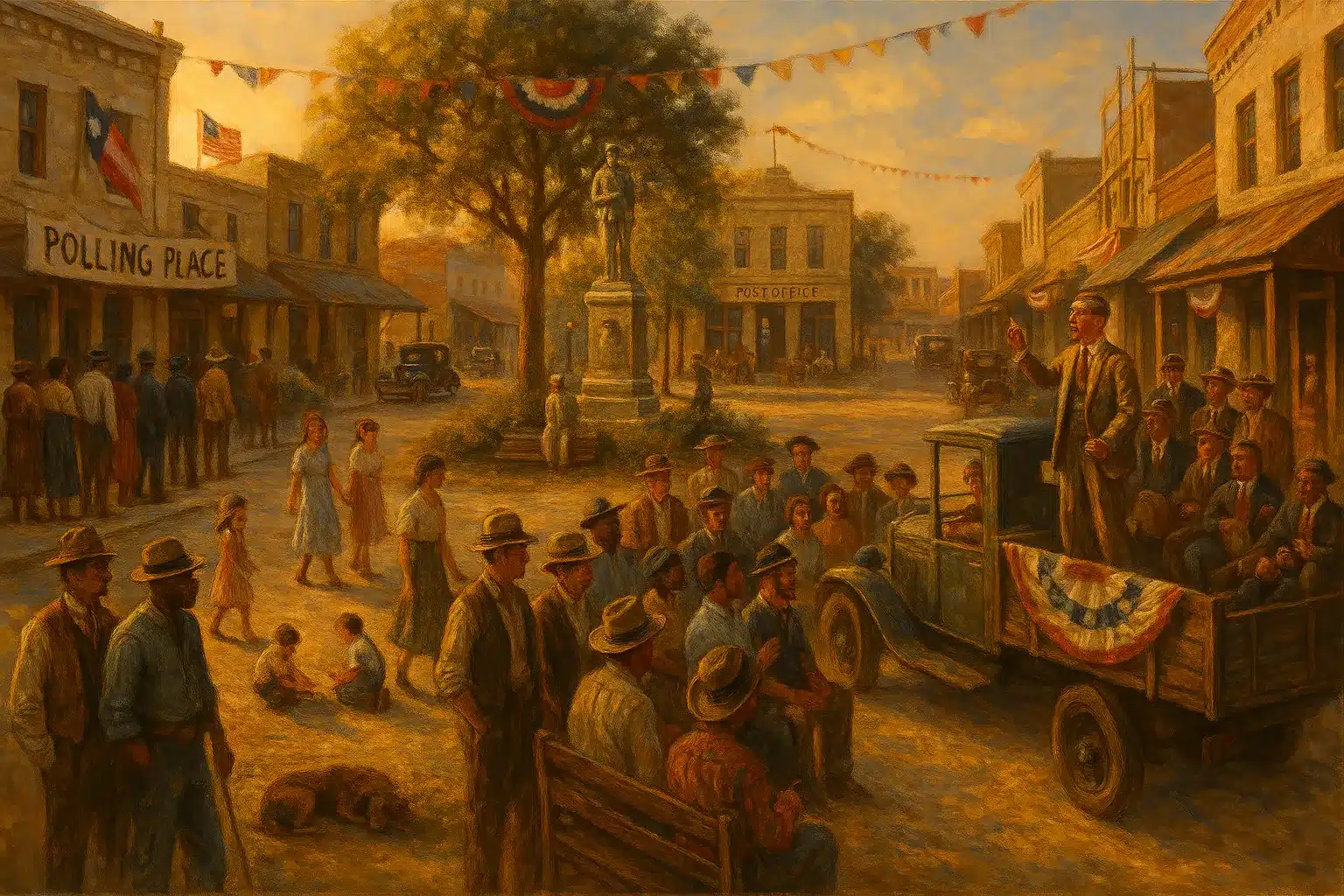Purpose of Primary Elections
A primary election is used to determine a political party’s nominees for office in advance of a general election. Primary elections in Texas are held every even-numbered year in March.
The primary is the first of two elections that a Democrat or Republican candidate needs to win in order to hold certain public offices. After winning a primary election, a candidate must also defeat any opponents in the general election in order to take office.
Other political parties in Texas do not participate in primaries but instead nominate their candidates through a convention process.1
“Voting in Texas is an event—like Friday night football, but with fewer people paying attention.”
Molly Ivins
Separate Party Ballots
A primary election is technically two separate elections that occur on the same day, one for Democratic Party candidates and the other for Republican Party candidates. Voters can only participate in one of these two elections.2
At polling places, voters typically check in at different desks depending on which party primary they wish to vote in. Some counties, however, use a joint primary system where everybody uses the same check-in station and the same voting machines.3
Open Primary System
Texas has an open primary system, which means that a registered voter may vote in any party primary regardless of prior party affiliation. The principal political parties in Texas therefore do not have registered members as such.4

A registered voter is not required to pre-register or take any steps towards affiliating themselves with a party before voting in a party’s primary election. Additionally, when a person registers to vote in Texas, they do not register with any kind of party affiliation. However, a voter may not participate in the primary election of one party and the primary runoff election of another party.5
A voter’s party affiliation ends at the end of each calendar year. A voter who voted in one primary in a prior year does not have to vote in the same party’s primary in the new year.
Texas is one of about a dozen states that have open primaries. Many other states have a closed primary system, which means that only registered members of a political party may participate in the party primary. Still other states have a semi-closed system that allows independents to participate in either primary, but limits registered party members to their own primary.
Offices Contested in Primaries
Texas conducts primary elections for state and county offices, judicial offices, as well as for congressional offices and the presidency. Municipal elections are generally non-partisan and are not preceded by primary elections.
Winners in primary contests are determined by majority vote. In the case that no candidate receives a majority vote, the top two candidates proceed to a primary runoff election, which is held on the fourth Tuesday in May in even-numbered years.
Primary Runoff Elections
When one candidate does not receive more than 50% of the votes in a primary election, the race is decided in a primary runoff election between the top two finishers.
Primary runoff elections take place about 12 weeks after the primary itself. Because these elections typically only have a few races on the ballot, or sometimes only one, voter turnout in these runoff elections typically is quite low.
Voting Hours
The polls are open from 7 a.m. until 7 p.m. in primary elections.6 A voter is entitled to vote after 7 p.m. if he or she is inside or waiting to enter the polling place by 7 p.m.7



